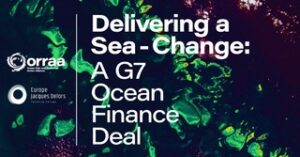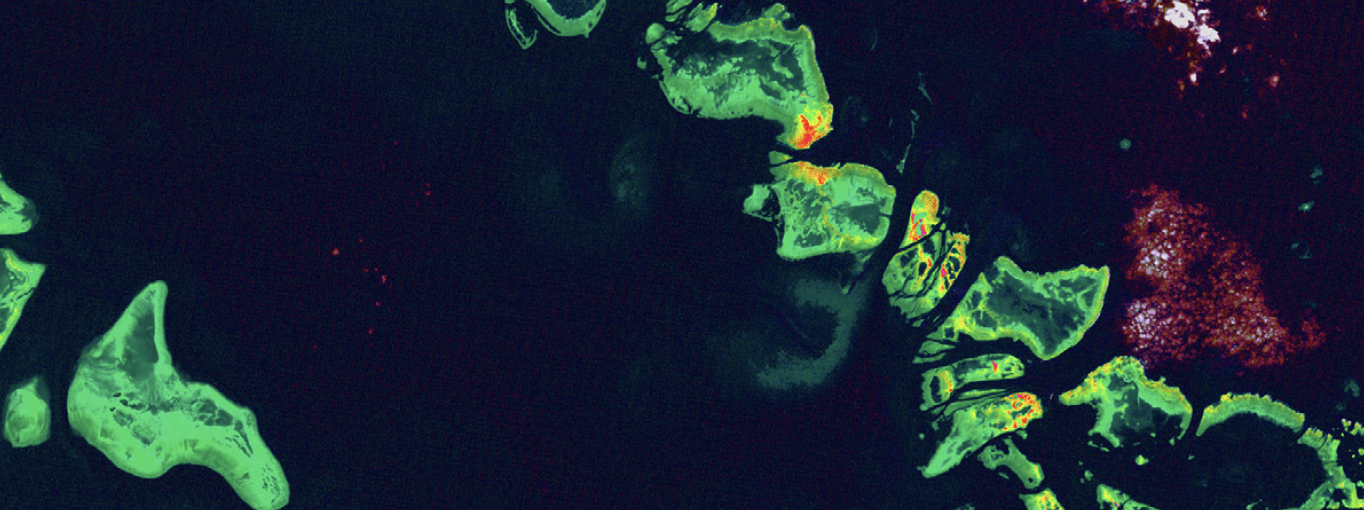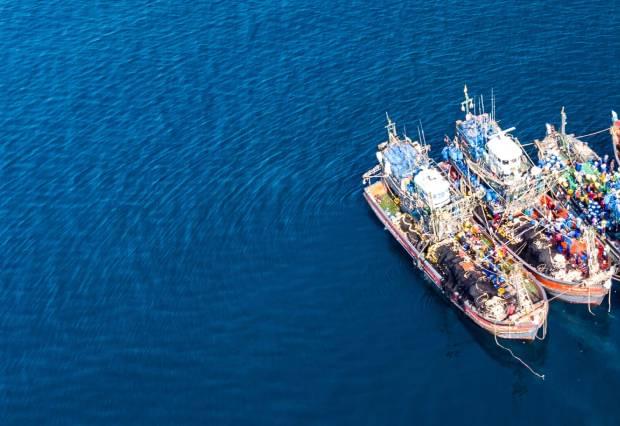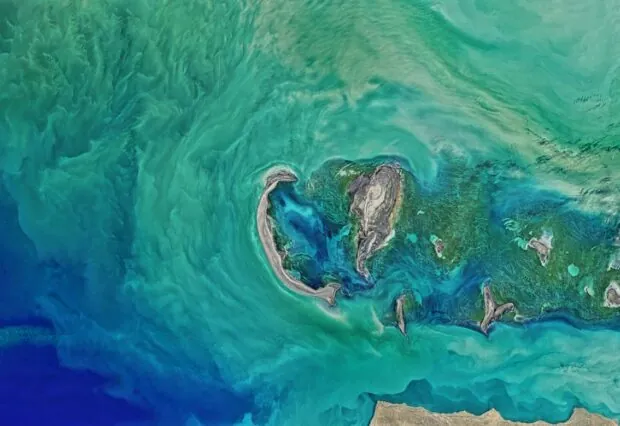Delivering a Sea-Change: A G7 Ocean Finance Deal
Europe Jacques Delors Institute & ORRAA launch report calling upon G7 to secure financing to prevent ocean degradation
In June 2022, Europe Jacques Delors Institute and ORRAA launched a jointly commissioned report calling on the G7 to secure financing to prevent Ocean degradation. The report was co-authored by leading financiers, scientists and policymakers from G7 countries and focused on how G7 leaders could put financial muscle behind what has been termed the eighth largest economy in the world: the Ocean.
Contributors included Claudio de Sanctis, CEO of Deutsche Bank’s International Private Bank, Pascal Lamy, President of the Paris Peace Forum, Geneviéve Pons, Director General of Europe Jacques Delors, Enrico Letta, President, Institut Jacques Delors, Jean-François Pons, Chair, European Money Market Institute, Markus Müller, Global Head of Chief Investment Officer Private Bank, Deutsche Bank, Kristian Teleki, Ocean Programme World Resources Institute and Director, Friends of Ocean Action at the World Economic Forum, Professor Anya M. Waite, CEO and Scientific Director of Canada’s Ocean Frontier Institute, Torsten Thiele, Founder of Global Ocean Trust and ORRAA Senior Advisor on Blue Finance, and ORRAA’s Karen Sack.
The report identified a four-point Ocean finance action plan:
- Reporting, disclosure and exclusion. The financial sector is increasingly applying ESG (Environmental, Social and Governance) objectives to help address the biodiversity crisis and protect nature. Within this, we need to apply agreed guardrails and safeguards that ensure the protection of marine and coastal resources progressively, consistently, and globally, including the exclusion of activities that are climate harmful and biodiversity negative. Ocean-related metrics should be integrated into the outcomes of the Taskforce on Nature-related Disclosures (TNFD) and the alignment of TNFD to the Taskforce on Climate-related Financial Disclosures (TCFD)
- Principles and standards for a sustainable Ocean economy. We need agreed quality standards and verification processes for sustainable blue finance products from loans to bonds to credits. The United Nations Environment Programme’s Finance Initiative’s (UNEP-FI) Sustainable Blue Economy Financing Principles and the UNFCCC’s Ocean and Climate Change Dialogue can both help to close knowledge gaps and boost ocean-climate action
- Cooperation, Engagement, and Public-Private Partnerships. Governments need to take policy and regulatory leadership and help to facilitate private sector engagement into projects both through direct support and blended finance, and through risk reduction concepts like insurance. Developing a broader global Ocean finance architecture that supports a rapid transition and provides entry points for Ocean technology, innovation for sustainability and for significant investments into the protection of blue natural capital within and beyond national borders, is key
- Financing a Sea Change. Investments are needed in early-stage, nature-positive and Ocean-science-based opportunities, in profitable and job-creation activities respectful of biodiversity, as well as through large-scale investment into coastal blue infrastructure that is zero-carbon, resilient, equitable, biodiversity positive and implements Nature-based Solutions
The G7 Foreign Ministers’ Communiqué of 14 May stated that the G7 is committed to mobilising resources, from all sources, to substantially increase funding in support of biodiversity finance by 2025, including increased funding for Nature-based Solutions with strong environmental and social safeguards, and ensure our economic and financial decision-making is aligned with sustainability objective.





